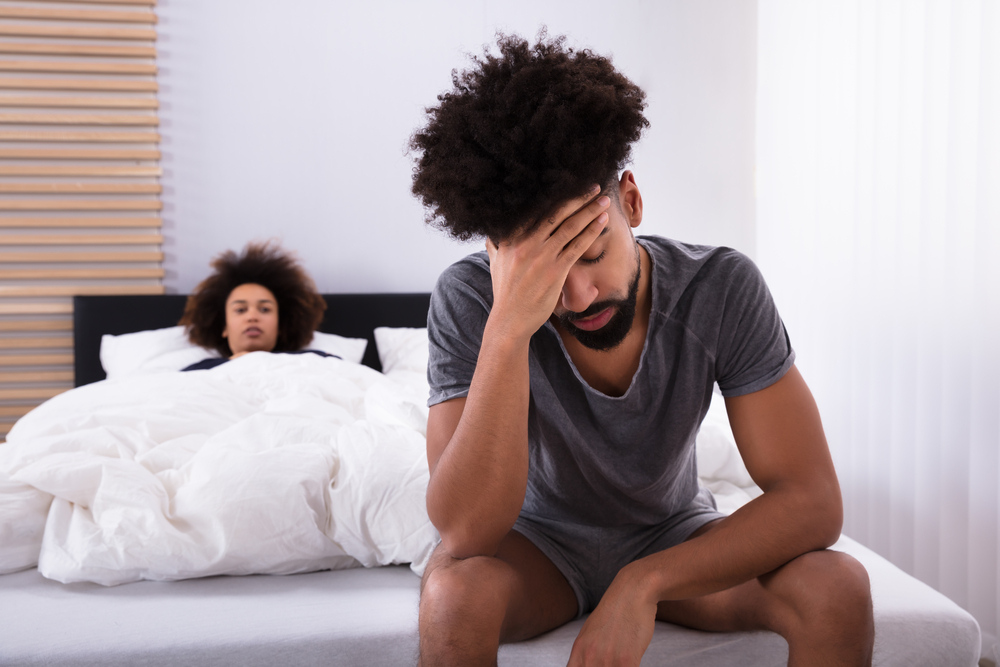
What Are the Sexual Health Consequences of LGBTQIA+ Discrimination?

Discrimination against members of minority groups such as the LGBTQIA+ community can have serious ramifications when it comes to the overall health and well-being of these individuals. (LGBTQIA+ stands for lesbian, gay, bisexual, transgender, queer/questioning, intersex, asexual, and all other gender and sexual identities).
Numerous studies have shown that discrimination and the systemic inequalities that exist in the healthcare system make it more difficult for LGBTQIA+ individuals to access necessary health services, which negatively impacts health outcomes. What’s more, enduring stigmas and biases can tax the emotional and physical health of LGBTQIA+ people, whether these biases are implicit (unconscious attitudes or stereotypes about a group of people) or explicit (biases of which a person is aware).
Given this information, perhaps it is not surprising that discrimination has been linked to several serious health conditions including depression, anxiety, suicidal ideation, post-traumatic stress disorder (PTSD), substance abuse disorders, and cardiovascular disease. Unfortunately, discrimination may also have a negative impact on the sexual health of people in the LGBTQIA+ community in multiple ways.
Firstly, experts widely agree that a person’s mental health plays a big role in their sexual health, and mental health conditions such as depression and anxiety are detrimental to sexual function and sexual satisfaction.
Individuals who are struggling with depression may find that they experience apathy, fatigue, and a decrease in their sexual desire and arousal. In some cases, anxiety has also been linked to decreased sexual desire and arousal. Alternatively, people with anxiety may be more prone to engage in compulsive sexual behaviors or be distracted by anxious thoughts during sexual activity. Medications for mental health conditions may inhibit desire and arousal, at times compounding the issue. Consequently, the association between mental health issues and sexual difficulties has major implications for the LGBTQIA+ community who are at higher risk of mental health conditions due to discrimination.
Secondly, many LGBTQIA+ individuals face potential or actual rejection from their family, school, work, and/or local community for their sexual orientation or gender identity. This rejection (or the fear of rejection) may prevent an individual from feeling comfortable expressing who they truly are or being with their preferred sexual partner(s). Anticipated or experienced rejection for one’s gender identity or sexual orientation is another way that discrimination negatively impacts the sexual health of the LGBTQIA+ community.
Past studies have shown that LGBTQIA+ youth are at higher risk of sexually transmitted infections (STIs) and may be more likely to engage in risky sexual behaviors than the general population. In fact, the rates of gonorrhea, chlamydia, and HIV have been found to be twice as high in gay, lesbian, and bisexual youth than in heterosexual men, which could be the byproduct of a comparative lack of sexual health education and healthcare resources for same-sex couples.
Finally, many transgender individuals encounter barriers to accessing affordable gender-affirming care. Gender-affirming care options are often not covered by insurance and may not even be offered in certain areas of the world. This situation can prevent transgender individuals from expressing their gender identity in the way they wish, possibly leading to negative sexual health consequences.
Fortunately, there are protective factors that may mitigate the negative effects of discrimination on a person’s sexual health. Consistently, LGBTQIA+ people who experience community and family support report better health outcomes than those who do not. Additionally, ensuring access to primary and sexual healthcare services to all individuals regardless of their sexual orientation or gender identity would go a long way towards supporting these groups. Anti-discrimination policies, both on a national and local level, are a good way to hold health care centers and other organizations accountable for discriminatory practices. Lastly, quality sexual health education that addresses common LGBTQIA+ sexual activities and issues in addition to heterosexual information is imperative for supporting the sexual health of all people.
Resources:
- Basson, R., & Gilks, T. (2018). Women’s sexual dysfunction associated with psychiatric disorders and their treatment. Women's Health, 14, 1745506518762664. DOI: https://doi.org/10.1177/1745506518762664
- Benson, P.A., & Hergenroeder, A.C. (2005, July). Bacterial sexually transmitted infections in gay, lesbian, and bisexual adolescents: medical and public health perspectives. In Seminars in pediatric infectious diseases (Vol. 16, No. 3, pp. 181-191). WB Saunders. https://doi.org/10.1053/j.spid.2005.04.007
- Casper, R.C., Redmond, D.E., Katz, M.M., Schaffer, C.B., Davis, J.M., & Koslow, S.H. (1985). Somatic symptoms in primary affective disorder: presence and relationship to the classification of depression. Archives of general psychiatry, 42(11), 1098-1104. DOI: 10.1001/archpsyc.1985.01790340082012
- Cornell University. (2019, December 19). Discrimination impacts health of LGBT people, analysis finds. https://news.cornell.edu/stories/2019/12/discrimination-impacts-health-lgbt-people-analysis-finds
- Corretti, G., & Baldi, I. (2007). The relationship between anxiety disorders and sexual dysfunction. Psychiatric Times, 24(9), 16-21. https://www.psychiatrictimes.com/view/relationship-between-anxiety-disorders-and-sexual-dysfunction
- Hafeez, H., Zeshan, M., Tahir, M.A., Jahan, N., & Naveed, S. (2017). Health Care Disparities Among Lesbian, Gay, Bisexual, and Transgender Youth: A Literature Review. Cureus, 9(4), e1184. DOI: https://doi.org/10.7759/cureus.1184
- St. Catherine University. (2021, April 15). How Discrimination Impacts LGBTQ Healthcare. https://www.stkate.edu/academics/healthcare-degrees/lgbtq-health-discrimination



